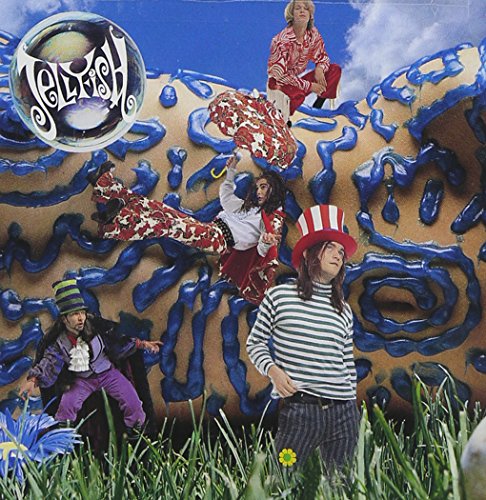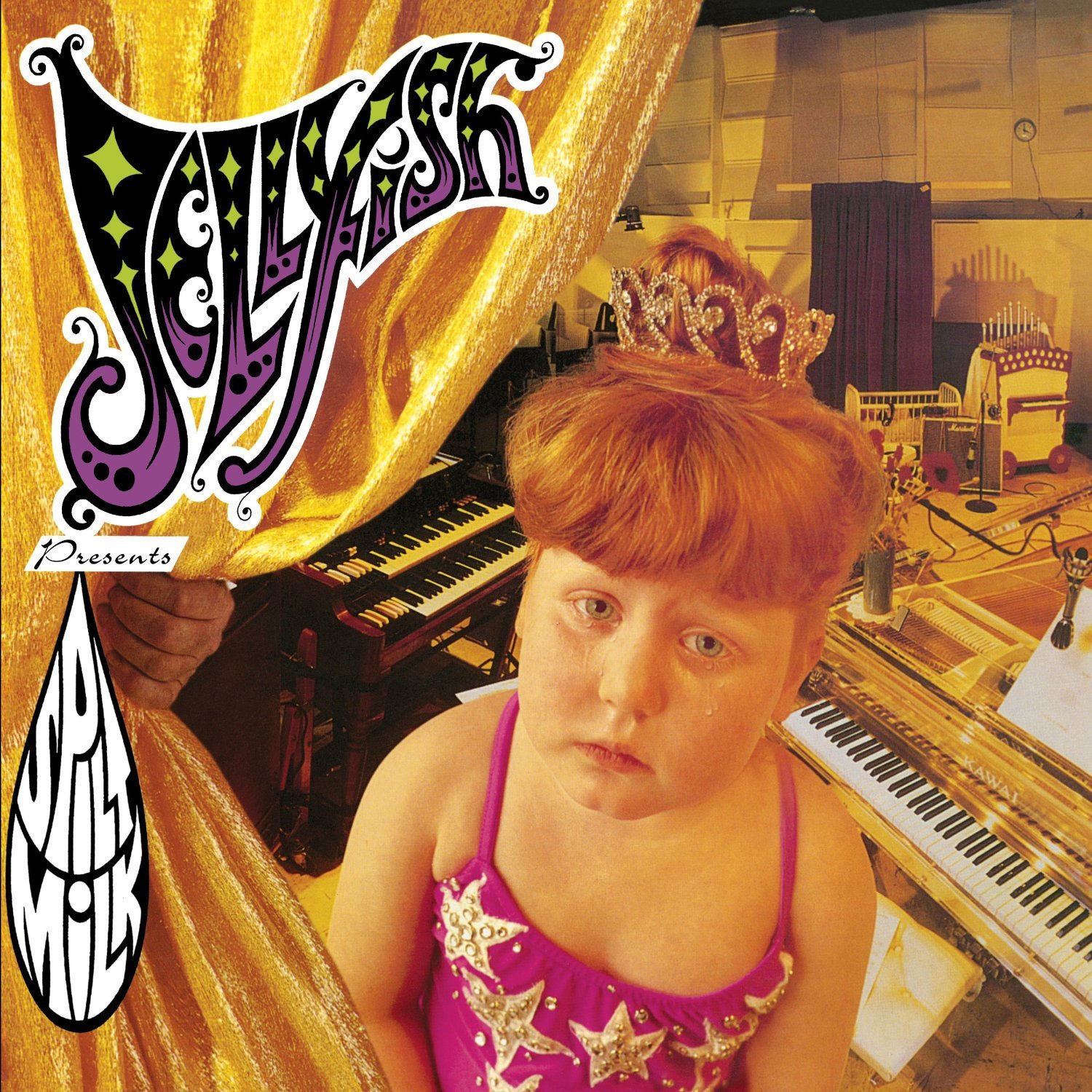
Jellyfish Bellybutton (1990)
Jellyfish Spilled Milk (1993)
Jellyfish, the great little band that couldn’t. Why, with such a mastery of retro ’70s musicianship, sensibility, worldview and song-writing chops did this band fail to make a splash?
First we have to travel back to the world of 1992, when heavy metal was making the parabola back to Earth after having been ascendant for the better part of a decade. Heavier and heavier had resulted in the excesses of death, speed and Scandinavian metal, and that vein had pretty much been tapped out. There was really nowhere left to go. Instead, progressive metal of bands like Dream Theater, Helloween and others took popular music in another direction, one first pioneered by Queen and even the Beatles. Melodic, heavy music with extremes of dynamics and feel.
Extreme was playing in this vein with 1992’s 3 Sides to Every Story, an epic record that was as much piano and orchestra based as it was guitar, led by virtuoso Nino Bettancourt’s composition, parts of it it read more like a suite than a set of songs. However, to be sure, there were a lot of pop ditties mixed in there that were anything but metal (Comic Poet comes to mind, or Seven Sundays, which doesn’t even qualify as a power ballad, more like a Queen “Just One Year of Love” outing.) Bands as diverse as Living Colour were using the same general template to create metal that was progressive, but not progressive in the traditional Yes, King Crimson, ELP, Gentle Giant mode where progressive just seemed to mean a bunch of disparate parts sewn together as an epic song. These were coherent, melodic, well thought out pieces of music where the production was intrinsic to the songs.
Steve Vai was doing something similar, but using his amazing guitar chops and Zappa influence to come up with something new, yet very melodic and dramatic. These and other bands seemed to herald a tectonic shift that was likely to rope in more mainstream audiences and Jellyfish, while it had definite heavy metal influences and songs, seems cater-made for this trend.
Not only ’70s harpsichords and sitars, but tubular bells, lush orchestrations, toy instruments and marching bands filled out the, if not over-produced, then produced-within-an-inch-of-their-lives Bellybutton (Spilt Milk was even more of more!) retro even to the point of dubbing in record scratches on the first track Man I Used to Be, with a Toots Tielmans-type harmonica solo. [Ed: it WAS Toots Tielman]
Always more dominated by co-songwriter Roger Joseph Manning, Jr.’s keys than the guitar of the talented Jason Falkner (perhaps leading to his leaving after the first album), the songs (mostly) not lick-based, as metal always had been. The melody drove most of these songs, even the heavier stuff like “All I Want is Everything” and “Joining a Fan Club” or the unreleased “Marry Me”.
Even where the guitar is prominent, it’s either overprocessed (Sabrina, Paste and Plato, ala Klaatu) or highlighted with things like castanets and glockenspiels which allows the guitar to serve the song rather than dominate it.
Stacked Queenish harmonies, the trademark of ’90s metal, were everywhere on Jellyfish songs. Nearly every song had a memorable and original melody (although influences from Beatles to Carpenters to Bacharach could be detected) and some really stellar singles like Baby’s Coming Back, King is Half Un-dressed and Ghost at Number One didn’t make a dent. If this stuff came out in the early ’00s I think it would have gotten a better reception than in the early ’90s.

Why is possibly traced back to a party I attended in that period of time. All the girls were gathered around a TV with MTV on as a background wallpaper, ooing over the fact the lead singer of the band on the screen had dyed his hair red (he would later dye it another shade of red with a shotgun). It was a band I’d heard about but up to then never seen nor heard (I disdained radio then, as now). This band received credit, due or not, for destroying metal as the dominant music and at least temporarily enthroning grunge (I love to call it that since they hated it) as the new king of the hill. MTV and the record companies were glad to play along because ushering in a new group of bands was more lucrative than paying the veterans, for one thing, and critics always hated metal and love being iconoclastic, they had always hated progressive music in all it’s forms and gloried in stupid, dumbed down music like punk, roots and finally grunge. They took it step further in the coming decade, enshrining that least musical form, rap, and it’s bastard sister hip-hop as the music you should be listening to.
All these forms were music for the non-musical, rap and hip-hop being rhythm based instead of melody based. This ultimately led to the great desert we find ourselves in now, where it’s no longer ‘cool’ to be musician, where kids don’t spend the massive hours needed to master an instrument, where kids grow up never have had being in a garage band, which proliferated when I was a kid, we all went to concerts every week, there were ‘showcase’ bars with lights, sound and big production. Hip-hop and rap led to these kids not giving a shit about musicianship, because those artists had none. They lipsynched if they sang at all and none of them played an instrument, the producers put it all together with synthesizers.
Now you read about the grammies giving every single major award to hip-hop artists, completing their urbanization (one way of putting it) of popular music. The good thing is rock has always been about rebellion against the king, and eventually kids will get sick of being fed such total corporate garbage as Tyler Swift and Beyoncy and Mr. Kardashian et al.
Their choices for live covers, Jet, No Matter What, Let ‘Em In, Hold Your Head Up are right out of the whitebread pop and progressive book, which is so hated by present-day urban contempo loving critics that even Sgt Pepper’s is getting historical revised and reviled. However, howevermuch black rap and hip-hop are forced down kids throats eventually the corporate stink will choke them. That is, if music can enjoy a Renaissance at all in today’s world. Can Boomers and their kids fuel a comeback of melodic, musicianship based music in the face of jungle-dumb beatboxes?
Maybe a deserving band like Jellyfish will make a comeback.
